
Hanging from the side of a sheer cliff, honey hunters of the Lisu ethnic minority group are surrounded by bees while standing on a suspended ladder.Province
Collecting wild cliff honey is the tradition of the ethnic group in southwest China's Yunnan Province.
The wild cliff bees are Himalayan giant honey bees. The male bees can grow up to three centimeters long, making them the largest honey bees in the world. And wild cliff honey is believed to be purer and healthier than standard honey.
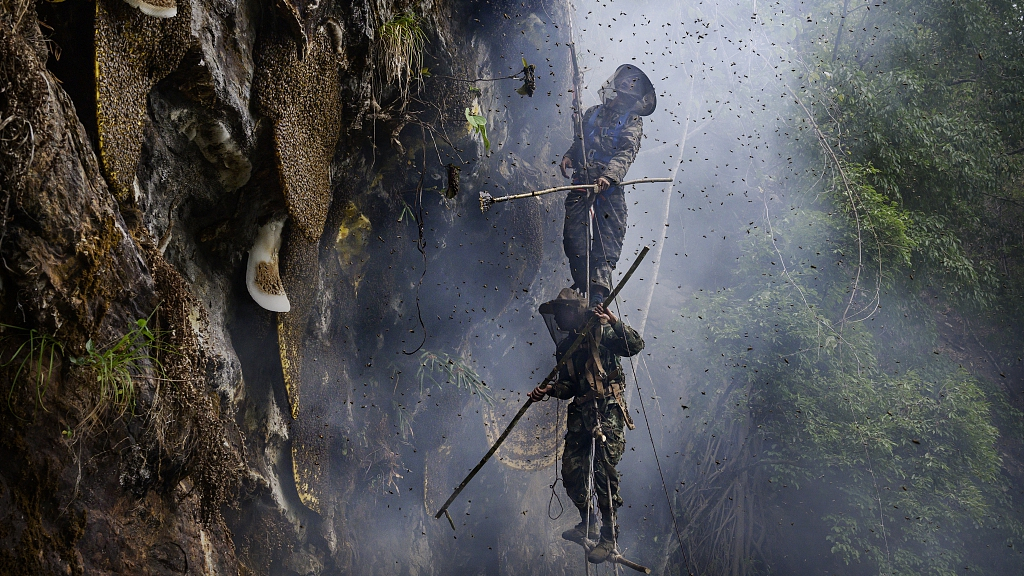
Lisu honey hunters use smoke to scatter the bees. /VCG Photo
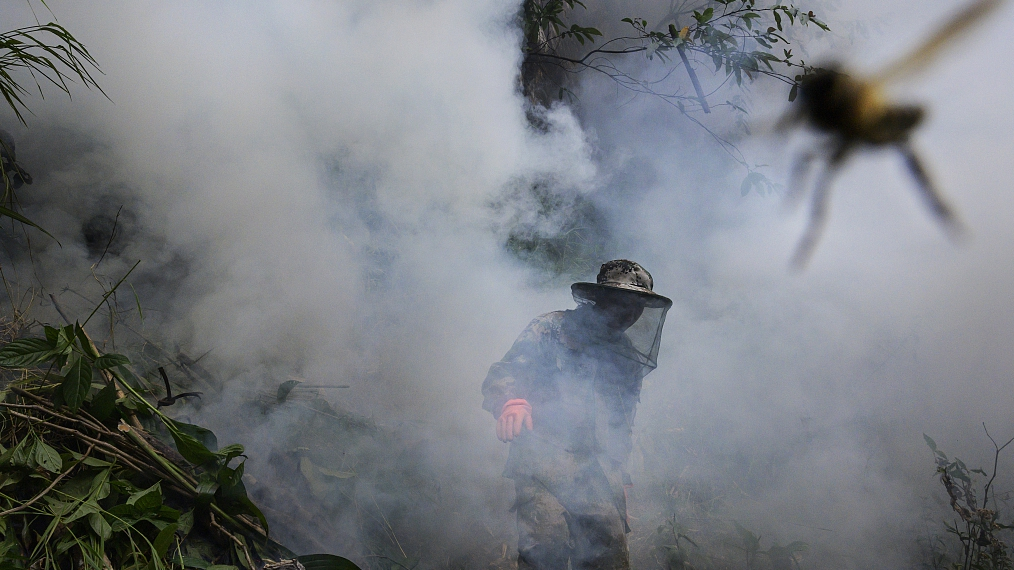
Lisu honey hunters use smoke to scatter the bees. /VCG Photo
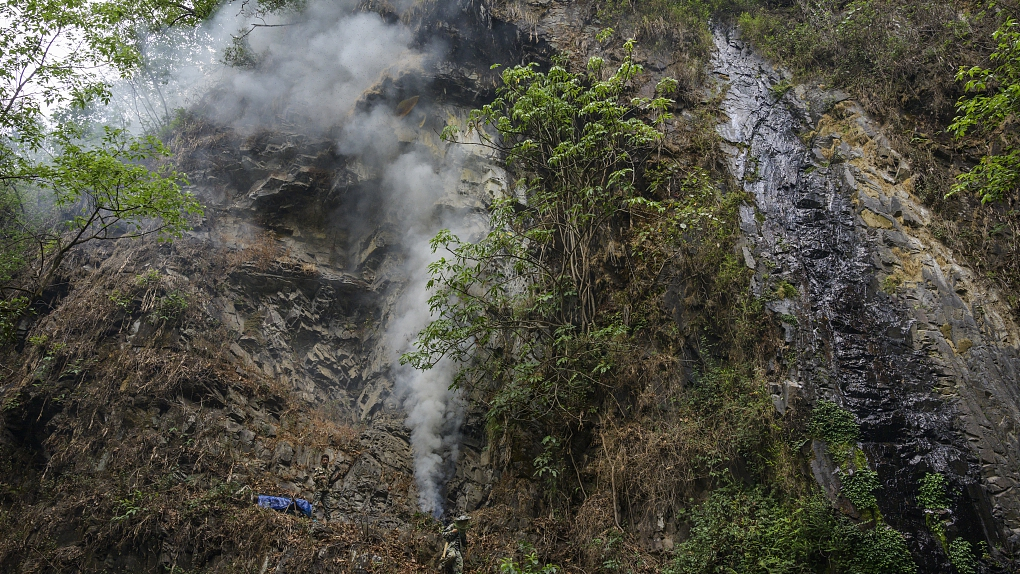
Lisu honey hunters use smoke to scatter the bees. /VCG Photo
However, collecting wild cliff honey is not easy work, especially when it comes from hives that are situated on steep cliffs. The Lisu honey hunters have to wear protective gear and use smoke to disperse the bees.
In order to make sure the Himalayan giant honey bees return next season, hunters never take honey from the same hive, and they always leave enough honey for the bees.
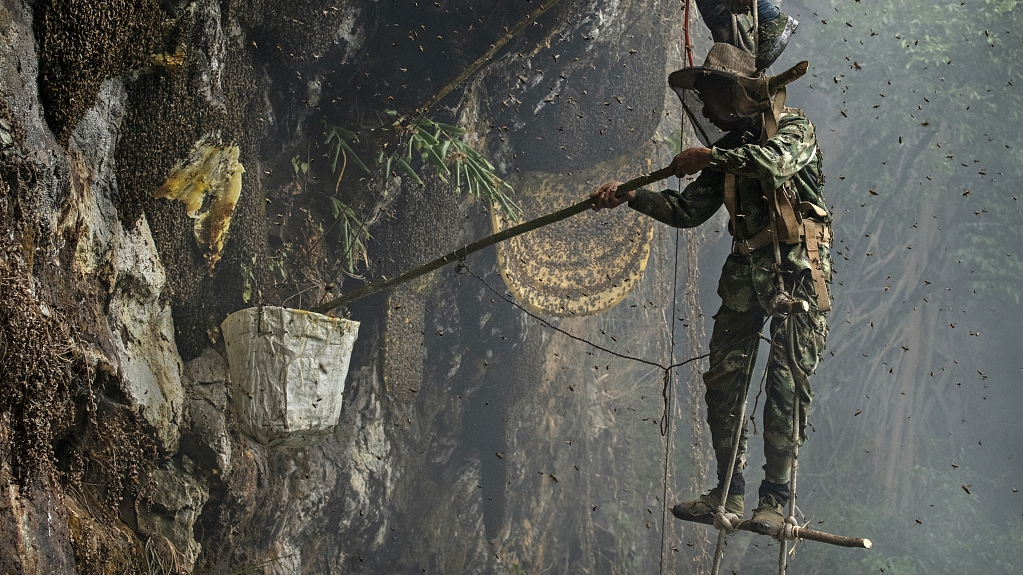
Lisu honey hunters collect honey on the cliff. /VCG Photo
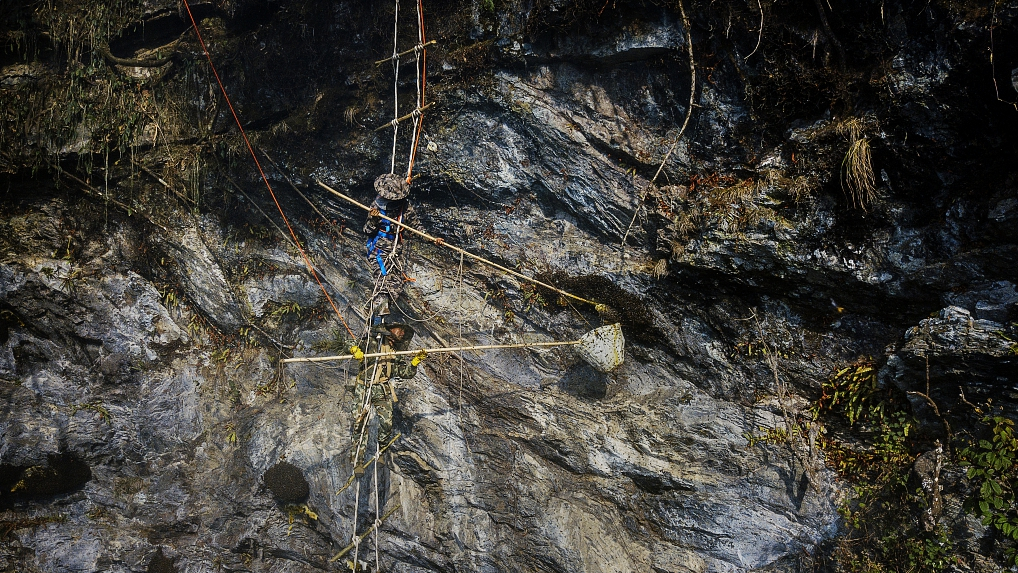
Lisu honey hunters collect honey on the cliff. /VCG Photo
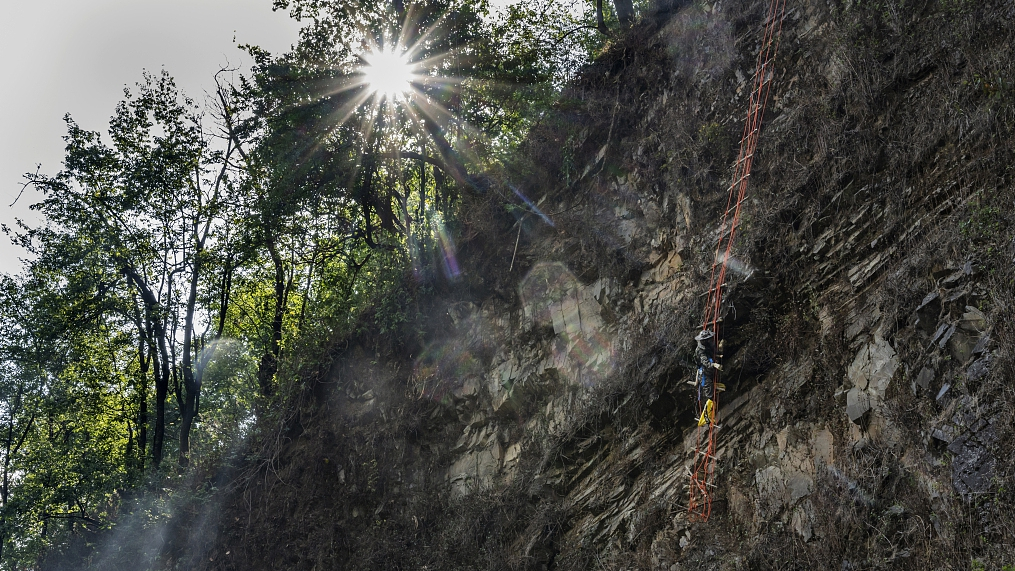
Lisu honey hunters collect honey on the cliff. /VCG Photo
The Lisu people reside in Yunnan's mountains. Only a few of them are still working as honey hunters – a dangerous and tiresome job.
And now, this traditional work is being threatened by climate change. According to the hunters, there are fewer hives because of global warming and heavy pesticide use among local farmers.
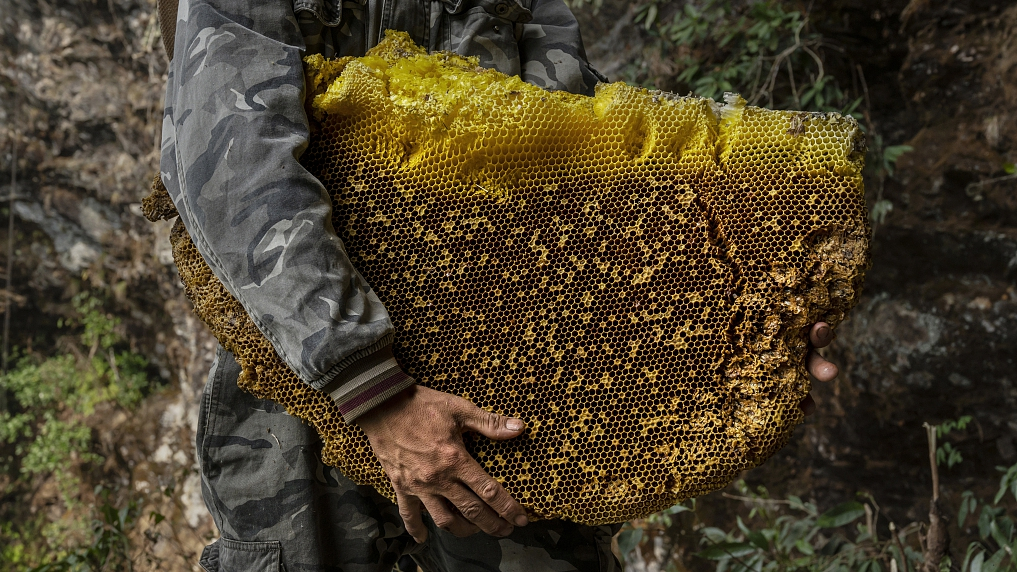
A hunter carries a large hive. /VCG Photo

Hunters process the honey. /VCG Photo
(Cover image via VCG)
(If you want to contribute and have specific expertise, please contact us at nature@cgtn.com)

Copyright © 2018 CGTN. Beijing ICP prepared NO.16065310-3
Copyright © 2018 CGTN. Beijing ICP prepared NO.16065310-3